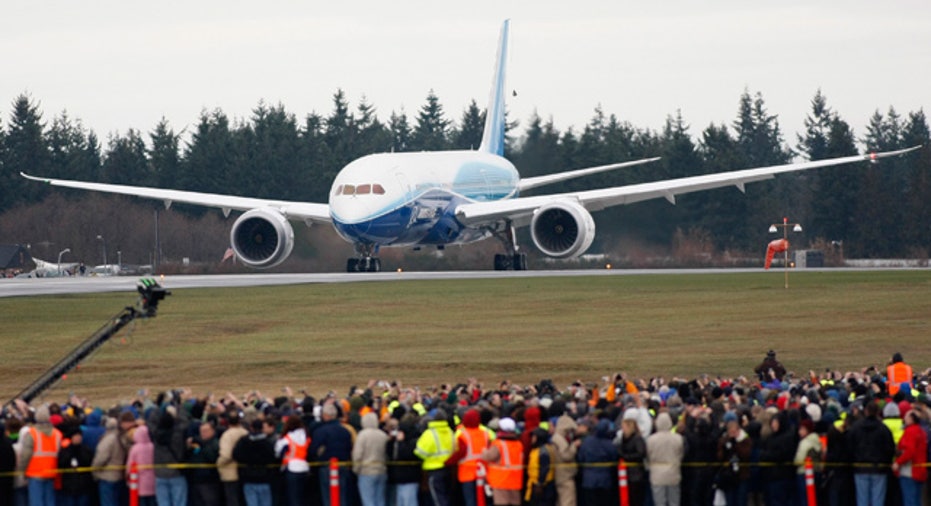FAA Temporarily Grounds Boeing 787 Aircraft

The U.S. Federal Aviation Administration said on Wednesday it would temporarily ground Boeing Co's 787s after a second incident involving battery failures caused one of the Dreamliner passenger jets to make an emergency landing in Japan.
The FAA said airlines would have to demonstrate that the lithium ion batteries involved were safe before they could resume flying Boeing's newest commercial airliner, but gave no details on when that could occur.
Boeing could not be immediately reached for comment.
All Nippon Airways Co Ltd said instruments aboard a domestic flight indicated a battery error, triggering emergency warnings. The incident was described by a transport ministry official as "highly serious" - language used in international safety circles as indicating there could have been an accident.
Boeing shares fell 2 percent in after-hours trading to $72.80 after the FAA announcement.
The 787, which has a list price of $207 million, represents a leap in the way planes are designed and built, but the project has been plagued by cost overruns and years of delays. Some have suggested Boeing's rush to get planes built after those delays resulted in the recent problems, a charge the company denies.
The use of new battery technology is among the cost-saving features of the 787, which Boeing says burns 20 percent less fuel than rival jetliners using older technology.
Lithium-ion batteries can catch fire if they are overcharged and, once alight, they are difficult to put out as the chemicals produce oxygen, Boeing's chief engineer for the 787, Mike Sinnett, told reporters last week. He said lithium-ion was not the only battery choice, but "it was the right choice".
In Asia, only the Japanese and Air India have the Dreamliner in service, but other airlines are among those globally to have ordered around 850 of the new aircraft.
Boeing has said it will at least break even on the cost of building the 1,100 new 787s it expects to deliver over the next decade. Some analysts, however, say Boeing may never make money from the aircraft, given its enormous development cost.
Any additional cost from fixing problems discovered by the string of recent incidents would affect those forecasts and could hit Boeing's bottom line more quickly if it has to stop delivering planes, analysts said.



















